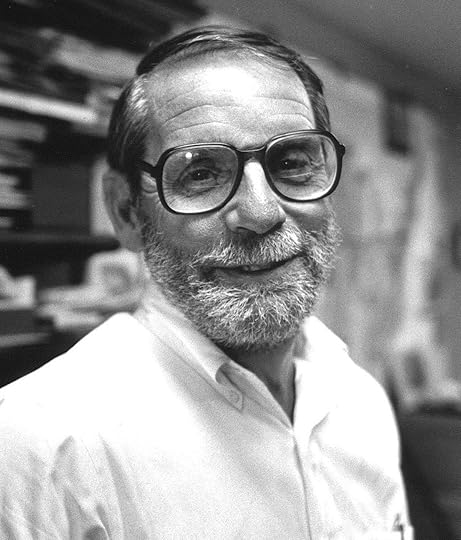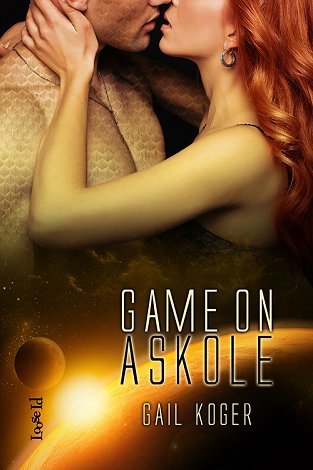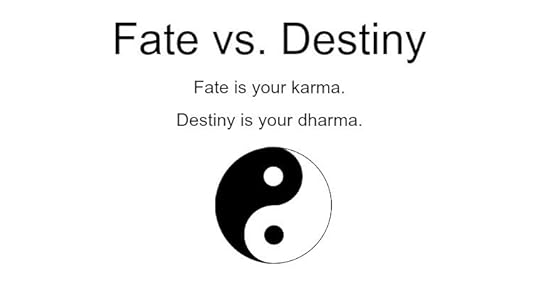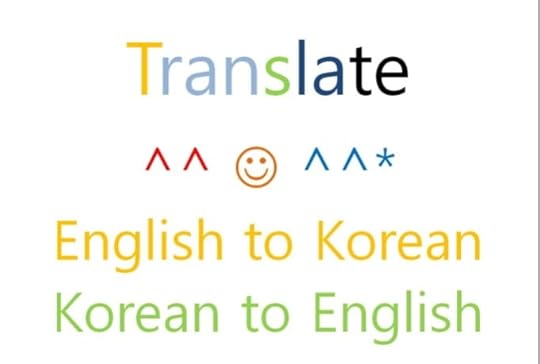Richard Harris's Blog, page 20
October 1, 2017
Quote of the Day
“Come with every wound and every woman you’ve ever loved; every lie you’ve ever told and whatever it is that keeps you up at night. Every mouth you’ve punched in, all the blood you’ve ever tasted. Come with every enemy you’ve ever made and all the family you’ve ever buried and every dirty thing you’ve ever done; every drink that’s burnt your throat and every morning you’ve woken with nothing and no one. Come with all your loss, your regrets, sins, memories, black outs, secrets. I’ve never seen anything more beautiful than you.”
— Warsan Shire
In the wake of yesterday’s fabulously fabulous response to Nayyirah Waheed and her gorgeous lyricism on what is so innate in us as human beings, I had to follow that up with something equally as spectacular. If you visit the kepthoney.com blog, you’ll see the above piece went with/came right after Ms. Waheed’s own sparkling gem.
According to The Poetry Foundation, Warsan Shire is a poet and activist from London, England. She’s the author of the collections Teaching My Mother How to Give Birth, Her Blue Body, and Our Men Do Not Belong to Us.
All I know is that her writing, as is evidenced today, reminds me of Michael Ondaatje’s poetry in many ways, like there’s a visceral element to her words that draws you in and allows you to almost taste them. Don’t believe me? Then take a gander at this beaut I can actually remember reading for the first time eons ego in a little place called Mokpo. From Ondaatje’s Coming Through Slaughter:
“He tried to take in the smell of her. The taste of her mouth in the next hotel room they passed along the road. He knew the shape of her body…He went with her for months into the relationship, awkward fist fights, the slow true intimacy, disintegration after they exchanged personalities and mannerisms, the growing tired of each other’s speed…What he wanted was cruel, pure relationship.”
I am admittedly not usually the world’s biggest poetry fan, but the last two posts have me reconsidering my thoughts on this issue. And the two sites I’ve linked to today are great places to start your own exploration into the genre.


September 30, 2017
Quote of the Day
“We have all hurt someone tremendously, whether by intent or accident. We have all loved someone tremendously, whether by intent or accident. It is an intrinsic human trait, and a deep responsibility, I think, to be an organ and a blade. But, learning to forgive ourselves and others because we have not chosen wisely is what makes us most human. We make horrible mistakes. It’s how we learn. We breathe love. It’s how we learn. And it is inevitable.”
— Nayyirah Waheed, from kepthoney.com
The organ and the blade. I love that image. I knew nothing about Ms. Waheed before today, but thanks to my friend Vicki P., I do now. And I’m more enriched as a result.
Per Wiki, “Nayyirah Waheed is an African-American poet and author who has published two books of poetry and has been described as ‘perhaps the most famous poet on Instagram.'”
Check out the kepthoney link above to see some more beautiful poetry.


New Words for the English Language?
How far can we push the English language before new words become ridiculous? I’m not talking about the trend towards shortening words and terms to abbreviations and acronyms, though that is becoming AIIOR (annoying in its own right).
This morning I was reading a review of a book about a bicycle, and the blurb claimed it was an “unputdownable read.” I get it. I can’t put the book down because this bicycle is ubber spectacular. Sweet!
But not all linguists are quite as open-minded, and their implacable approach to language can be stifling at times. For example, there are purists in the world – France and North Korea come to mind right away – who instead of adopting foreign words (mainly English) into their own language will come up with some literal translation that seems kind of goofy. At least to me it does.
But what about when we native speakers of our respective languages want to push the boundaries of what is deemed acceptable in terms of orthography? Is “skidstain” an appropriate denouncement of another person? If a book is so good it’s “unputdownable,” does that mean the same holds true for the opposite case, that a book is so bad it’s clearly “putdownable”?
While conducting extensive research for this post, I came across a site called demilked.com and a piece that Martynas Klimas put together titled “24 Brilliant Words That Must Be Added To A Dictionary.”
Take the time to check out this list when you can, but for me some of the wittier ones included:
askhole (n): someone who asks stupid, pointless, or obnoxious questions.
nonversation (n): a completely worthless conversation; small talk.
cellfish (n): an individual who continues talking on their phone so as to be rude or inconsiderate of other people.
unlightening (adj.): learning something that makes you dumber.
beerboarding (n): extracting secret information from a colleague by getting them drunk.


September 29, 2017
Obsession
Many reading this right now will not have heard of him, fewer still will have read any of his books, notably his Pulitzer Prize-winning 700-page geology anthology, Annals of the Former World. But make no mistake about it, John McPhee is a legend in the literary world for a few reasons, one of which is his “obsessive process.”
In an article for The New York Times titled “The Mind of John McPhee,” Sam Anderson visited the reclusive Mr. McPhee at his home and has now written about this experience as well as the man himself – and there’s a lot to take away from it, even if you’re not a hermit (“shy to the point of dread”) or a writer.
As Mr. Anderson writes so eloquently:
“Every book about writing addresses, in one way or another, the difficulty of writing. Not just the technical problems (eliminating clutter, composing transitions) but the great existential agony and heebie-jeebies and humiliation involved — the inability to start, to finish, or to progress in the middle. This is one of the genre’s great comforts: learning that you are not alone in your suffering.”
He then goes on to quote other literary figures on the same subject:
William Zinsser: “It was hard and lonely, and the words seldom just flowed.”
Annie Dillard: “I do not so much write a book as sit up with it, as with a dying friend.”
Anne Lamott: “Your mind has become a frog brain that scientists have saturated with caffeine.”
For anybody who enjoys reading and learning about the process that goes into the craft, this is a rare behind-the-scenes look at one of the art form’s great masters.


September 27, 2017
Another Winner!
On Destiny & Fate
In English, we like to use the words “fate” and “destiny” interchangeably. Indeed, search them out in a thesaurus and you’ll find one in the other’s synonyms box. But take a closer look, and you’ll notice there are slight differences in the nuance of their meanings.
Fate, for example, “stresses the irrationality and impersonal character of events,” according to the dictionary. It comes from the Latin fata, and is defined as a “prophetic declaration, oracle, prediction.” Something akin to, oh I don’t know…Shit happens, so get on with it?
Destiny is somewhat more prosaic, etymologically speaking, and comes from the Old French, destinée, which refers to “purpose, intent, fate, destiny; that which is destined.” So this might be closer to , Oh I don’t know, It was meant to be?
This lack of a clear-as-day distinction between the two words in English never really concerned me (actually, I don’t think it concerns too many people), but when I started learning Korean I noticed they did separate the notions of destiny, unmyung (운명), and fate, palja (팔자), both of which come from Chinese characters (運命 and 八字, respectively), and that got me thinking.
Before continuing, I thought I would let a couple of two mart guyz put in their two nickles (we no longer have pennies in Canada) about fate/destiny and the whole pre-determination thing.
“Everything is determined, the beginning as well as the end, by forces over which we have no control. It is determined for the insect, as well as for the star. Human beings, vegetables, or cosmic dust, we all dance to a mysterious tune, intoned in the distance by an invisible piper.”
― Albert Einstein
And then there’s this little-known go-getter.
“I have noticed that even those who assert that everything is predestined and that we can change nothing about it still look both ways before they cross the street.”
― Stephen Hawking
What’s interesting about the Korean terms is that people use palja when something goes wrong (It’s my palja to suffer/be married to a trainwreck/fail at business), while they use unmyung when things are going swimmingly (It was my unmyung to become president/be wealthy by age 30/fall in love with you).
I remember studying the notions of fate and pre-determination in philosophy class many moons ago at university and thinking to myself, Pre-determination seems like the easy way out for those who don’t want to own the bad with the good. Anyone can say they deserved what they got when it’s all sunshine and rainbows, but it’s much rarer for a person to take responsibility when shit falls apart and say, It wasn’t fate; it was my actions, and this is necessarily a consequence.
Maybe I’m wrong. Who knows. What I do know is that this last image below throws more food for thought into our salad a la fate & destiny, and something to consider as you get on with the rest of your day.


September 26, 2017
The Art of Translation
How much freedom does a translator have when sculpting a literary work into another language?
That seems to be the burning question recently behind Deborah Smith’s “brilliant but flawed translation” of Han Kang’s Man Booker International Prize-winning novel, The Vegetarian. Writing for The Los Angeles Times, Charse Yun’s article “How the Bestseller ‘The Vegetarian,’ Translated from Han Kang’s Original, Caused an Uproar in South Korea” points out how pundits are now revealing glaring errors, omissions and flat-out additions to Han Kang’s original Korean manuscript.
Justified? Necessary? Helpful for the average English reader?
Yes, says I.
If you’re familiar with older translations of Korean novels, then you’re also familiar with the all-too-familiar feeling of your eyes being gouged out by the words on the page; they’re unnatural, inconsistent, misleading, and confusing much of the time. The result is a hackneyed version of what is purported to be, in its original Korean version, “great” or “incredible” or “fantastic.”
For a closer look at the challenges faced by translators, check out this insightful look into the world of translating Japanese literature into English, specifically the works of Murakami Haruki. The three participants in this email “roundtable” were Philip Gabriel, Murakami translator and professor of Japanese literature at the University of Arizona in Tucson, Jay Rubin, Murakami translator and professor of Japanese literature at Harvard University, and Gary Fisketjon, an editor at Alfred A. Knopf.


September 24, 2017
Now Here’s a Cover and Title for the Ages!
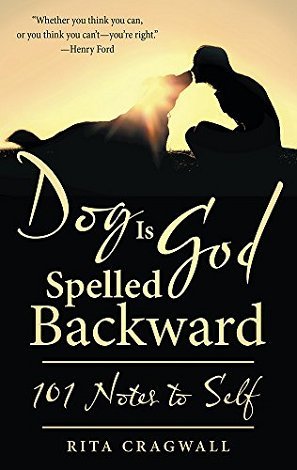
I found this waiting for me in my Twitter queue this morning and had to do a double-take. The blurb/punchline is “You are already that which you want to be, and your refusal to believe this is the only reason you do not see it.” Gotta say, I don’t see it going on here with the cover art and title.
NOTES TO SELF:
– Spell all words backwards today in search of meaning.
– Why is it only in English that this phenomenon of dog-god/god-dog occurs?
– How on earth did Ms. Cragwall get Henry Ford to endorse her book!


September 23, 2017
Going Freelance, Going Digital
A very insightful and honest piece about being your own boss online from Tom Kuegler (@tomkuegler7) called “4 Harsh Realities Of Working As a Full-Time Digital Nomad.”
While Mr. Kuegler jokes about living it up on beaches as he downs Mai Tais and finishes his next job on a laptop computer, his beach chair sinking comfortably into the white sand of a pristine beach, I’ve actually been that guy – and let me tell you something, it’s not all it’s cracked up to be.
From 2007 to 2009, I spent two years traveling the world. For the 24 months I was crisscrossing continents, I worked full time as a freelance writer, editor and translator. I did in fact work on beaches in Fiji, Australia, Vietnam, Spain and Bulgaria, to name but a few beautiful places. I raced up and down Venetian bridges trying to find a WiFi signal; leaned my computer out windows in Kampala in search of the same thing; hung out in Bohemian cafes in Prague, Lisbon and London; and worked in more airports than I care to remember.
The lessons I learned? 1) “There” is no better than “here.” 2) Working on the road is stressful. 3) Italy is stuck in the Middle Ages when it comes to technology. (P.S. Rome, stop losing everybody’s luggage!)
I’m now grounded and settled in Toronto, and while I have yet to purchase my dream pad (Come on, lottery numbers!), I’m much more productive working in one spot.
Per Mr. Kuegler’s piece, however, the four realities he refers to are:
1. It’s Not Going To Happen All At Once
2. There’s No Real “Road Map” To Success
3. The Timing Is Never Right —You Just Have To Jump
4. You Have To Really Want It — Or Else You’ll Fail
True dat. But where there’s a will, there’s a way, I’m told. And there is. If going it alone is what you really want and you think you can handle the new pressures and challenges, by all means take the plunge. Although there are countless pitfalls to deal with along the way, the reality of this reality is simply that working remotely – being a digital nomad as it were – represents the future for so many of us. Doubly so if you dislike set hours in the same office, day in and day out, 52 weeks a year.


Quote of the Day
“For relaxing times, make it Suntory time.”
― Bill Murray, Lost in Translation
Easily one of my favourite scenes from one of my favouritest movies, as it captures, well, the title of the movie.
JAPANESE DIRECTOR: sdjsdkj sdjsd sdj sdj jsd kjsd k sdjd sjs ksjd kjs djs djd sjk dskj dskj sdkjs dskjs js kj dskj sjkd skj sj jsd kjs jks kjs dsdjsdkj sdjsd sdj sdj jsd kjsd k sdjd sjs ksjd kjs djs djd sjk dskj dskj sdkjs dskjs js kj dskj sjkd skj sj jsd kjs jks kjs dsdjsdkj sdjsd sdj sdj jsd kjsd k sdjd sjs ksjd kjs djs djd sjk dskj dskj sdkjs dskjs js kj dskj sjkd skj sj jsd kjs jks kjs dsdjsdkj sdjsd sdj sdj jsd kjsd k sdjd sjs ksjd kjs djs djd sjk dskj dskj sdkjs dskjs js kj dskj sjkd skj sj jsd kjs jks kjs d
TRANSLATOR: He say, “More intensheety.”
BILL BABY: That’s it? That’s all he said?
If I’m to use a more serious quote to capture today’s theme, I’d use this one from the German philosopher Walter Benjamin.
“It is the task of the translator to release in his own language that pure language that is under the spell of another, to liberate the language imprisoned in a work in his re-creation of that work.”
― Walter Benjamin Illuminations: Essays and Reflections
As it were, I’m working on two translations right now, one inbound (into my native language) and one outbound (into my second language). They’re both challenging, of course, if in different ways. Hence, I’ve been thinking a lot about the art of translation lately.
I plan on doing a post on the nuts and bolts of translation in the near future, specifically from a far-out language like Korean (which, comparatively speaking, is very similar to Japanese), but if you have a chance to read an author like Murakami Haruki in English, it’s interesting to see the different styles his main translators have employed over the years, from Alfred Birnbaum to Jay Rubin to Philip Gabriel.
Finally, one more quote on “translation” from a literary point of view and from none other than the great American author of books like White Noise and Underworld:
“When I work, I’m just translating the world around me in what seems to be straightforward terms. For my readers, this is sometimes a vision that’s not familiar. But I’m not trying to manipulate reality. This is just what I see and hear.”
― Don DeLillo





